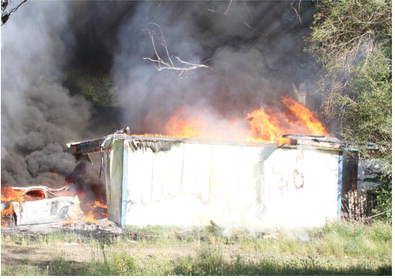Arntzen Doubles Down On Approach To New Education Laws
State Superintendent Elsie Arntzen held a virtual meeting Wednesday evening, March 20, where she sought to counter bipartisan criticism from lawmakers that the Office of Public Instruction, under her leadership, has fumbled the implementation of several high-profile education laws passed in the 2023 session.
The Zoom event, virtually attended by 13 people including OPI staff and a Montana Free Press reporter, largely featured Arntzen’s deputy and chief legal counsel, Rob Stutz, publicly reviewing statutory language to explain the agency’s approach to implementing the new laws. Pointing to various effective dates and decades-old statute, Stutz presented the case for why the agency has taken a contrary stance to the Legislature on the details of four new laws, indicating it intends to stick to its position.
Those details include the timing of state funding for early childhood literacy programs this summer, the timeline for districts to report spending on Indigenous culture instruction, the opening process for new public charter schools, and student privacy considerations in the upgrading of OPI’s statewide education data systems. The last has been a point of increased friction between Arntzen’s office and other leaders in Montana’s K-12 education system over the past year.
“It’s important to understand what the legislation says so that we can make sure that we implement it the way that it’s written,” Stutz told attendees as he reviewed the early childhood literacy bill — a statement that spoke to his broader view that OPI is implementing all four laws based on a strictly accurate reading of their language.
Wednesday’s discussion followed a contentious twoday hearing last week where state legislators on a pair of education-oriented interim committees aired their concerns directly to Stutz, who attended in Arntzen’s stead. The disagreement was fueled by allegations that Arntzen’s decisions at OPI have resulted in a failure to properly implement the new laws, resulting in delays and confusion for local school district staff.
“I’m not going to try to determine motivations or that sort of thing,” Rep. David Bedey, the Hamilton Republican who chairs the Education Interim Budget Committee, said during those proceedings. “But the net result of the decisions that have been made by the superintendent of public instruction is that programs that we have put into law are being disrupted or impeded in their implementation.”
Arntzen, who is currently running for Congress in a competitive Republican primary, was physically absent from the hearings citing personal obligations but quickly responded to the criticism. Minutes after the budget committee voted 6-2 to send her a letter formally expressing its disappointment, she fired back with a public statement decrying the move as “political persecution.” Arntzen doubled down on that message Monday with a lengthy “op-ed,” distributed as an OPI press release, referring to committee members as “schoolyard bullies,” the proceedings themselves as “kangaroo courts,” and the accusations that OPI was not adequately implementing new laws as both “bizarre” and “false.”
“Montana children, parents, and communities want the Legislature to focus on delivering results,” Arntzen, a former legislator, concluded in her statements. “Some in the Legislature are acting more childish than the children we are supposed to be serving. I remember when we used to resolve legislative issues with real solutions, not name-calling and politically motivated stunts. Montanans deserve better.”
Speaking before lawmakers on OPI’s behalf last week, Stutz repeatedly defended the agency positions that led to the disagreement, saying that the ways in which the laws were crafted and the way they interact with existing state law preclude OPI from implementing them the way lawmakers said they’d prefer. For example, legislators stated they intended for the Board of Public Education to be the sole authority in state approval of public charter schools under House Bill 549. But Stutz argued that the bill did not explicitly exempt those schools from complying with a more rigorous school opening process laid out in existing statute — a position Arntzen reiterated this week in a white paper explaining OPI’s legal position on the laws in dispute.
“Nothing in this legislation waives or replaces the public-school opening procedures, which are in already established law,” the white paper reads. “Therefore, OPI is required by law to have public charter schools go through these opening procedures, which are straightforward and make the schools eligible for state funding.”
The pre-existing school opening laws would ostensibly require all 19 of the public charter schools approved by the Board of Public Education last month to secure supplemental approval from Arntzen’s office and from local county commissions. On Thursday, the board posted notice of a March 25 meeting to vote on sending a letter to Arntzen requesting she exempt the new public charter schools from the additional approvals.
Stutz’s virtual presentation Wednesday served as a condensed version of his previous arguments on three of the four debated bills, as well as a bill involving OPI’s database modernization project that was discussed separately last week. Stutz did not address the dispute raised over a 2023 law revising the flow of per-pupil funding for students who transfer to a school outside the district they live in. Doug Reisig, executive director of the Montana Quality Education Coalition, had told lawmakers he was concerned that OPI was not providing districts with adequate guidance about how to comply with the new law, prompting statewide education associations to emphasize their own guidance initiatives. That law, House Bill 203, did not appear on OPI’s white paper this week.
The only public question of the evening came from Sen. Becky Beard, R-Elliston, who said appreciated the agency’s exploration of the technical details of the four laws. Beard asked whether House Bill 338, which strengthened requirements for districts to report their spending of state funds specifically flagged for Indigenous culture instruction, also made any changes to the teaching requirements for that subject.
Stutz replied the bill did apply new instructional reporting requirements but noted that such reporting was already mandated as part of Montana’s annual school accreditation process. He said it’s “exciting” to see the requirement now written into state law, adding that OPI has updated its accreditation reporting system to enable districts to upload documented evidence of their Indian Education for All activities.
“Although the provision of Indian Education For All is a local decision and the decision about how to spend and report Indian education role funds is a local decision, there is going to be greater accountability because the instruction reporting requirement through the accreditation system is going to really document a lot more thoroughly how that is delivered,” Stutz said.
Throughout the presentation, Stutz made it clear that Arntzen’s office is not inclined to reconsider its interpretations to appease lawmakers. In her closing, though Arntzen endeavored to land on a positive note, vowing to ensure students across the state “get educated in the best manner that they can” and expressing her hope that the evening’s event had “helped heal that conversation.”

